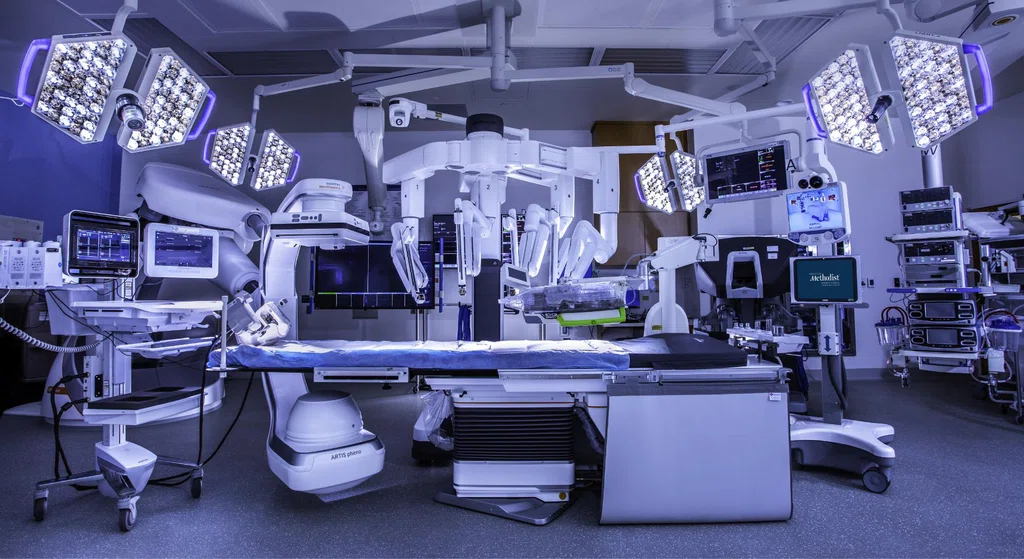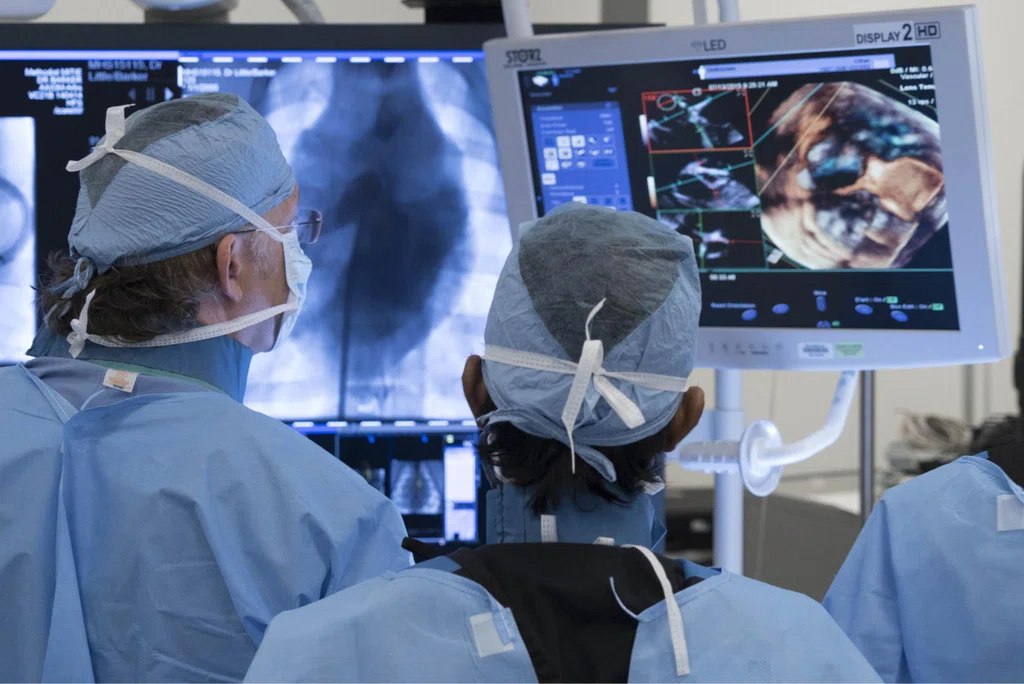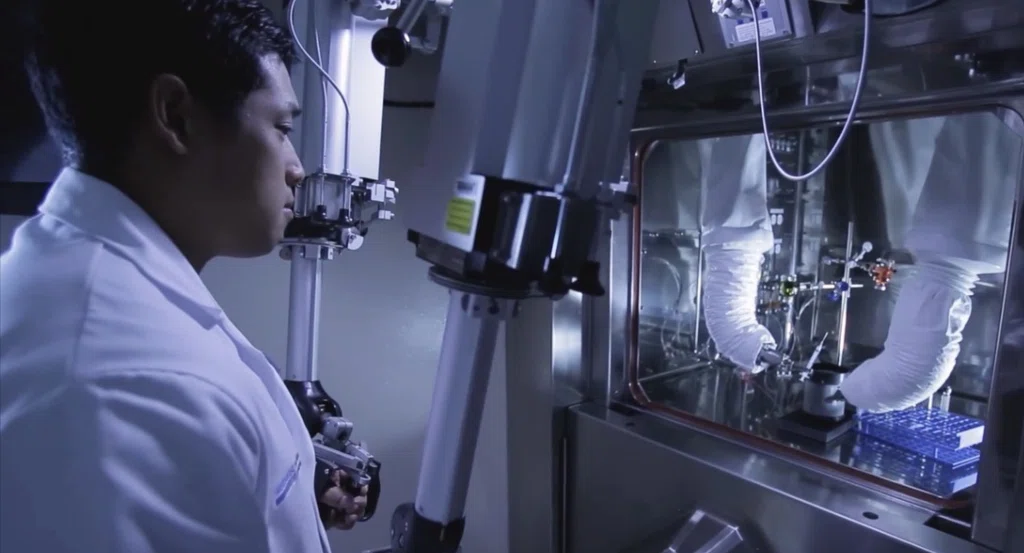
President’s letter
2020 Metrics
Cycle of Translation
Visionary Gifts

Discovery to Clinic

Innovative Education

Translational Luminaries
Introduction
The Ann Kimbell and John W. Johnson Center for Cellular Therapeutics
The Fondren Food & Health Alliance and The Fondren Inflammation Center
Cockrell Center for Advanced Therapeutics
Paula and Joseph C. “Rusty” Walter III Translational Research Initiative
Jerold B. Katz Academy of Translational Research
result
Outcomes Research
Precision Medicine
CPRIT Funding to Drive New Discoveries in Cancer Therapeutics
Siemens Healthineers and Houston Methodist Imaging Innovation Hub Empowers Researchers to Push the Boundaries
Novel Monoclonal Antibody Treatment Halts Tumor Growth in Deadly Ovarian and Pancreatic Cancers
Houston Methodist Institute for Technology, Innovation & Education (MITIESM)
Can Devices Provide A New Treatment Option for Glioblastoma?
Houston Methodist Hospital’s new Paula and Joseph C. “Rusty” Walter III Tower offers the Most advanced treatments and innovations available
Neuroimaging Offers New Insights into Neurodegeneration
COVID-19 Studies
Restorative Medicine
Houston Methodist and Rice University Launch Center for Translational Neural Prosthetics and Interfaces
Non-invasive Spinal Stimulation Enables Paralyzed People to Stand Unassisted
Dissolvable Implants Enhance the Body’s Ability to Heal Broken Bones
Cell Encapsulation May Hold the Key to Preventing Cell Transplant Rejection
Revolutionizing the Future of Complex Valve Disease Management



Science in Service
of
Medicineresult
President's letter
2020 Metrics
Cycle of Translation
Visionary Gifts of Hope


Introduction

The Ann Kimbell and John W. Johnson Center for Cellular Therapeutics

The Fondren Food & Health Alliance and The Fondren Inflammation Center

Cockrell Center for Advanced Therapeutics

Paula and Joseph C. “Rusty” Walter III Translational Research Initiative

Jerold B. Katz Academy of Translational Research

From Discovery to Clinic


Introduction

Restorative Medicine


Houston Methodist and Rice University Launch Center for Translational Neural Prosthetics and Interfaces

Non-invasive Spinal Stimulation Enables Paralyzed People to Stand Unassisted

Dissolvable Implants Enhance the Body’s Ability to Heal Broken Bones

Cell Encapsulation May Hold the Key to Preventing Cell Transplant Rejection

Revolutionizing the Future of Complex Valve Disease Management

Precision Medicine


CPRIT Funding to Drive New Discoveries in Cancer Therapeutics


An Innovative New Tool to Enable Drug Discovery and Personalized Medicine


Devising a Novel Combination Treatment for Aggressive Double-hit Lymphoma



Expanding the RNAcore to Encompass the Entire Cycle of a Cure


Siemens Healthineers and Houston Methodist Imaging Innovation Hub Empowers Researchers to Push the Boundaries

Novel Monoclonal Antibody Treatment Halts Tumor Growth in Deadly Ovarian and Pancreatic Cancers

Houston Methodist Institute for Technology, Innovation & Education (MITIESM)


Surgical Technology Developed in MITIE Gains FDA Approval


Pushing the Frontier of the Robotics Revolution

Can Devices Provide A New Treatment Option for Glioblastoma?

Houston Methodist Hospital’s new Paula and Joseph C. “Rusty” Walter III Tower offers the Most advanced treatments and innovations available

Neuroimaging Offers New Insights into Neurodegeneration

Translational Luminaries




Discovery to Clinic
Precision Medicine

Houston Methodist Institute for Technology, Innovation & Education (MITIESM)
Houston Methodist Institute for Technology, Innovation & Education (MITIESM)


Over the past decade, the Houston Methodist Institute for Technology, Innovation & Education has become one of the most advanced education and clinical research facilities in the world.

Alan B. Lumsden, MD

Randolph H. Steadman, MD
At MITIE, our experts can continually refine their skills and acquire new expertise to perform at optimal levels as well as advance new innovations and develop the metrics required to define procedural competence in a hands-on simulated clinical care environment. The integrative design the institute’s research and training spaces enables our experts to effectively collaborate within MITIE throughout the entire progression of technological or procedural development within the research core, efficacy confirmation within a simulated clinical environment and dissemination to practicing physicians within the training area and MedPresence room.
Under the new leadership of Alan Lumsden, MD, Walter W. Fondren III Presidential Distinguished Chair in the department of cardiovascular surgery, MITIE is closely working with experts throughout the organization to further align Houston Methodist’s research and education efforts with the Centers of Excellence in a venture that will synergistically expand all of our programs.
01
Surgical Technology Developed in MITIESM Gains FDA Approval

MITIE played an integral role the development of a new device called StimSite that creatively solves an issue confronted by surgeons during the three million procedures in the U.S. annually that involve making incisions near the ureters.
Stimsite was devised by Albert Huang, MD, a former Houston Methodist surgical resident and research fellow and current founder and CEO of Allotrope Medical and TMCx entrepreneur in residence. The device provides general, ob/gyn and colorectal surgeons with an elegant tool to help locate and avoid the ureters. After years of planning, prototyping and testing, Huang’s device received FDA clearance in November 2020.
When the StimSite device generates a specifically calibrated current in the lower abdomen, the famously difficult to locate ureters are the only structures in the vicinity containing the smooth muscle needed to respond to electrical stimulation. The rhythmic movement of the stimulated ureters makes it much quicker and easier for surgeons to locate and avoid the ureters when performing surgical procedures in the region. Huang began the clinical pilot studies on StimSite by training Ob/Gyn surgeons from a private practice to use the device at MITIE.
02
Pushing the Frontier of the Robotics Revolution

The Houston Methodist Institute for Robotics, Imaging and Navigation will focus on research projects in medical robotics, haptic technology, artificial intelligence, enabled robotics and remotely controlled robotics.
The new center will serve as a central resource for coordinating expertise, interactions and processes for the many robotics-related lines of research
currently underway at Houston Methodist. It will track all robotics across the system, describe the purpose and the procedure for using them, and identify gaps where robotics can be built or repurposed to meet specific needs. Ultimately, Houston Methodist clinicians who have developed procedures that can be integrated with robotic technologies will have access to in-house expertise and technology to develop their process, create a prototype and market their product.
More from Discovery to Clinic











